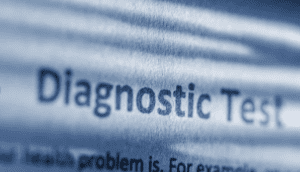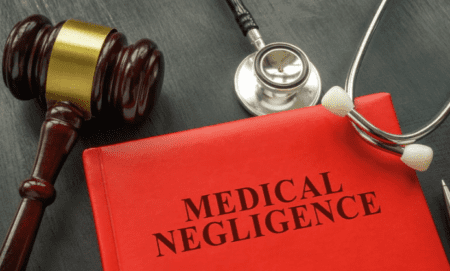Frequently Asked Questions
- What Are My Legal Rights After an Accident?
- Should I Go to a Company Doctor?
- Should I Use My Health Insurance for A Work-Related Injury?
- Medical Testing After a Maritime Accident
- The Company Doctor Is Refusing To Perform Medical Testing. What Should I Do?
- Under the Jones Act, Who Is Responsible for Medical Negligence?
- Medical Treatment for Maritime Workers in Foreign Countries
Let’s face it, your future and ability to work depends on your health.
In the maritime industry, this couldn’t be more true. Any seamen, from the captain to the deckhand, requires a high degree of manual labor, often under extreme and hazardous conditions. When accidents happen on the water, any injury—no matter how minor—requires proper medical treatment and care immediately.
Medical expenses can be life altering, especially for a more complex injury. It’s important to know your legal rights in the event of a work injury on the water, so you can seek proper medical care, without concern for hospital bills.
The first thing to know is that you should never use your health insurance for a maritime injury. Health care for a maritime injury should be paid for by your employer.
What Are My Legal Rights After an Injury?
We’ve compiled a list of every seamen’s basic maritime rights after experiencing an accident on the job. Know them, and share with your crew members as well.
-
You do NOT have to give a recorded statement after your accident in order to have your medical coverage approved—this is a very common trick companies use. Don’t fall for it. What you say can and will be used against you.
-
You have the right to select your own doctor.
-
You must see a company chosen doctor, but only ONCE, and not before you see your own doctor.
What’s the Deal with Company Doctors?
Ever wondered why it seems every maritime company rushes their injured workers off to a special “Company Doctor”? Well, there are a number of reasons why an employer would insist you receive your health care from their selected doctor—but understand none of these reasons are in the best interest of your health and future well-being.
A company selected doctor:
-
May be very slow or reluctant to recommend special testing (MRIs, CT scans, nerve testing) which could prove the severity of your injury. If the tests chosen by the company doctor don’t diagnose what is actually wrong with you, the company can deny that you are injured at all. For example, they may run a quick x-ray, which offers very limited visibility for very serious neck or back injuries, which are common for maritime workers.
-
Can release you to return to work more quickly if they do not diagnose your injury properly, making it seem as if your injury wasn’t serious and will not require more medical attention, which is often untrue.
-
Will often communicate directly with your employer or the insurance company about your condition, cutting you out of your care plan. Your selected doctor may not be willing to do this, especially upon request.
-
Will have complete control over your medical plan, and may impede future care needs. Your personal medical provider, or one chosen by your experienced maritime attorney, will be a fair, impartial doctor who is ONLY concerned about your health care. Not about what your employer wants or thinks.
It’s important to understand that once ANY doctor declares you do not require further medical care, the company will stop approving medical care and the associated expense. Even if it’s just the opinion of a ‘company doctor’, it will serve as an excuse for your company to deny you health care from other doctors, regardless of your true injury state.
Should You Use Your Health Insurance Coverage for A Work-Related Injury?
No, you should never use your health insurance for an injury sustained at work. Medical treatment for a maritime work injury should be paid for by your company or its insurance company directly, rather than through your personal health insurance plan.
Ideally, the first step would be that your maritime injury is properly reported. It is then the responsibility of your company, or its health insurance provider, to completely cover and approve your health plan. Even if you have maritime health insurance provided through by your employer, trying to use health insurance can complicate and even hurt your injury claim.
Most health insurance does not cover work-related injuries.
Employers will sometimes claim that you have tried to commit fraud if health insurance is used for medical services after a work-related injury or illness. In fact, we’ve unfortunately seen this happen even when the employer suggested or told the injured party to use their health insurance! Another reason why it’s so crucial for you to be aware of your own rights, and seek out impartial counsel to protect yourself.
Medical Testing After a Maritime Injury
In addition to x-rays, basic medical testing that you should expect includes both MRI and nerve conduction studies. An MRI, commonly performed on the neck, knees, shoulder, ankles and back, shows ligament and other soft-tissue damage that cannot be visualized on an X-ray. Nerve conduction studies are used to diagnose nerve injuries, and are commonly administered to those who have suffered trauma to the lower back.
If the company doctor is refusing basic diagnostic tests, they are likely defending your employer. Seek another physician immediately.
If you are uncertain of your next steps, or have issues getting a second medical opinion, ask for help. Experienced maritime attorneys can help you get the specialized medical care and proper diagnosis you are entitled to.
It’s an unfortunate reality that many employers aren’t willing to cover the cost of diagnostic testing. They don’t want to prove that you have a serious injury, even if it would get you the help you need. We’ve been helping injured maritime workers for over 50 years at The Young Firm, and we see things like this happen. It’s a hard lesson to learn for anyone who doesn’t have maritime attorneys on their side.
Get Every Possible Test Done
These test results are literally your one chance to square up with your employer, and prove the injury they may have contributed to or caused. You simply must know what is medically wrong, what can be done to fix it, and how much it will cost.
Going to appointment after appointment without extensive testing will not help you get the answers you need. This is why The Young Firm fights for our clients to receive every possible medical test, to determine even the smallest abnormality which could affect you now, or in the future.
I (Tim Young) would like to share a quick personal story. Each year I get an annual physical which includes an exercise stress test. Many years back at my first physical, the hospital said the stress test showed a ‘false positive’ for cardiac fibrillation. If you don’t know what that is Google it—I did and it will scare you to death, much like myself! So I said to the doctor, “Gee, what’s a false positive? Sounds like saying someone is ‘a little pregnant’?” He explains that ‘in all likelihood’ it was just a test error and that I should not worry about it. Wrong answer. I insisted he do a more involved follow-up test, even after he told me I didn’t need it, twice! I paid for it out of my own pocket, and the test came back normal and confirmed the ‘false positive’ was nothing to worry about. Was I stupid to pay for a test that came back normal? Absolutely not. It gave me such peace of mind to know more about my health, so it was easily worth every penny.
If your doctor tells you he can’t find anything on the first test to explain your pain and difficulty, don’t stop there. Your next question needs to be “Well doc, what other test can you run to tell us more?”
The Company Doctor Is Refusing To Perform Medical Testing. What Should I Do?
You need to seek other medical support from an impartial physician, who has no reason to potentially defend your employer. Under the Jones Act and maritime law, you are allowed to choose your own treating physician. Your employer is still responsible for coverage of the medical expenses, no matter what doctor you choose to see.
It is so important that you insist on receiving medical support from a doctor you trust, so that all the necessary tests may be performed to diagnose any medical problem you may have suffered.
Under the Jones Act, Who Is Responsible for Medical Negligence?
My employer chose my treating physician and there were serious mistakes made in my medical care.
You should be aware that if you go to your company doctor, medical negligence could happen. Seeing only a company doctor can severely damage your claim and depending on your injuries, could be extremely hazardous to your health.
Admiralty laws require that companies be held liable for damages if such medical negligence occurs.
Remember: your employer uses their own doctor, typically, to limit their chances of being sued. They are a business – NOT your family, no matter how often they like to say that they are. If your family was in charge of your health care plan, they would never refuse you tests or coverage.
Not receiving an adequate evaluation of injuries could cause serious health consequences, misdiagnosis, and mistreatment for you. If this happens, it’s important that you review your rights on the subject of employer caused medical negligence. The legal process may be intimidating at first, but it can help you get your life back.
This is especially important for offshore workers who are closer to foreign land and may have to seek medical service away from their home country.
International Health Insurance and Medical Treatment for Maritime Workers in Foreign Countries
Americans working overseas on an oil rig or vessel have additional considerations, especially when it comes to international travel and the associated medical care. Maritime workers who require medical care in international waters due to an injury or illness may have different hurdles to leap.
The Jones Act and maritime law both state that your employer must provide you with immediate medical treatment due to any type of injury or illness.
If your employer delays providing you with prompt medical support while you’re working overseas, this could give rise to a legal claim against your employer. Especially if your condition gets worse.
Very often this situation arises when there isn’t a work-related “injury” on the rig or vessel. Oftentimes an employee will simply become ill with some type of disease, virus, infection, or otherwise. Whether a work-related injury or a non-work-related illness—your employer must provide proper and adequate medical treatment.
Remember, if your employer selects the doctor or hospital that treats you while you are working in the foreign country—your employer is responsible for any medical negligence on the part of the doctor or hospital.
The Young Firm has handled many heartbreaking cases involving this very issue. Unfortunately, many overseas oil rigs and vessels operate in extremely remote and undeveloped areas. These regions typically do not have access to proper medical doctors, and certainly not specialists. Basic life-saving medications used for years in the United States, may not be readily available to these countries.
One of our clients suffered a routine stroke while working on an oil rig off the coast of South America. Unfortunately, he was brought to a small town medical facility, without the necessary resources or knowledge about stroke patient procedure. What could have been a temporary ischemic attack (TIA) turned into a full-blown brain hemorrhage, because our client failed to receive a clot-busting medication. This would have been the standard procedure in the United States and other developed countries. As a result, he obtained a very successful settlement, which provided all he needed for his future.




